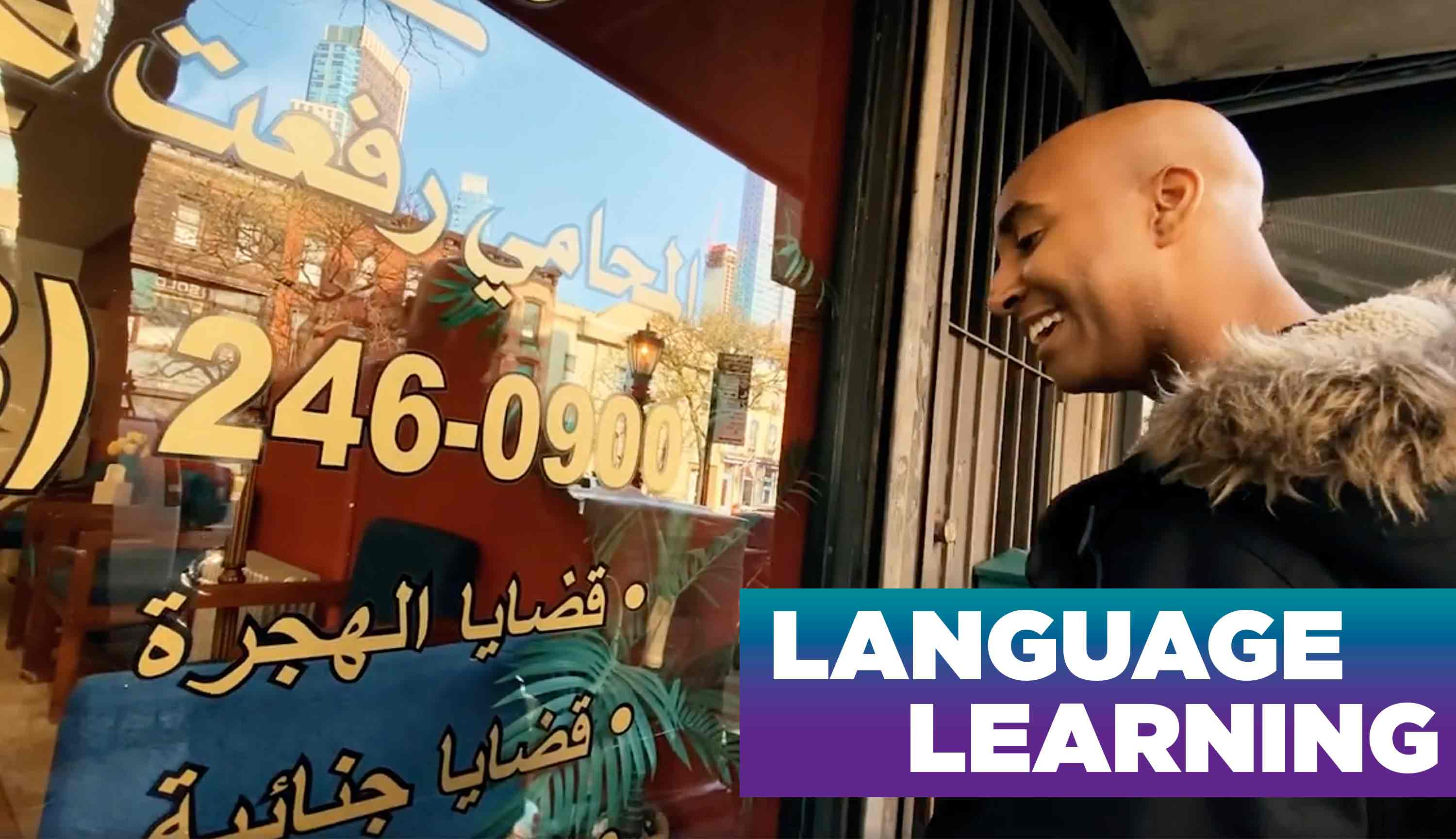
In our increasingly globalized world, knowing a second language can help you advance your career and connect across cultures. But why stop there? If two languages are better than one, then three is even better. As a Romance Languages major at NYU, you’ll study two languages, choosing from French, Italian, Spanish, and Portuguese.
“I realized my passion for linguistics and languages in high school, where I studied both French and Spanish,” says Cameron Azari. They’re a Romance Languages major studying French and Spanish. “Languages allow me to connect with people I otherwise would never be able to converse with. As a result, they enable me to gain insight into a diverse array of cultures and perspectives. For me, that’s the most beautiful part of this major. As the world grows more and more diverse, so does the need for people to understand each other. That starts with language and communication. Personally, I plan on learning as many languages as I can in this lifetime.”

What Is the Romance Languages Major?
Despite the name, romance languages have nothing to do with moonlit strolls on the beach. Instead, “romance” stems from the Latin word “romanicus,” meaning “Roman.” And in Rome, they used Latin, from which all romance languages descend. At the NYU College of Arts and Science, the Romance Languages major includes four languages: French, Italian, Spanish, and Portuguese. Each student chooses a combination of any two of these languages. Then, under the guidance of an adviser in each department, they take five courses in a primary language and four in a secondary one. While some classes cover linguistic skills and others dive into culture, history, or literature, almost every class is taught in its native language. Therefore, students need to enter the program with proficiency in at least one of the languages they’ll study.
Discover Your Options
There are over 40 romance languages used across the world. At NYU, you can study the four most used ones.
- French: Connect with folks from Quebec to Louisiana and Paris to sub-Saharan Africa as a member of NYU’s tight-knit French language community. Plus, since French is the unofficial working language of the UN, NATO, and the EU, you’ll have access to a world of career possibilities.
- Italian: Learn about Italy’s culture, history, and society while honing your language skills at the largest freestanding Italian department on the continent. And if you study away at NYU Florence, you’ll live and learn at Villa La Pietra. A 550-year-old villa in the Tuscany region, Villa La Pietra boasts acres of olive groves and a world-famous art collection.
- Spanish: Study the world’s second most known language in one of NYU’s oldest departments. “In our department we often say Spanish is your native language and you just don’t know it,” asserts Department of Spanish and Portuguese Languages and Literatures clinical professor Lourdes Dávila. “Just like you don’t want to go through the world without knowing English, you don’t want to go through the world not knowing Spanish.”
- Portuguese: Use the official language of Portugal, Brazil, and Mozambique (and six other countries) while exploring these regions’ vibrant artistic, literary, and musical histories. Because Portuguese is designated a critical language, vital for US security but lacking sufficient users, you’ll have many career options.

Perfect Your Accent Abroad
While Romance Languages majors aren’t required to study abroad, it’s highly encouraged. “It may not be mandatory, but if you want to truly complete the goal of a Romance Languages major, which is mastery of your languages, you must be willing to study abroad, leave behind your life in New York City, and immerse yourself in the local culture,” says Andy Song. He’s a Romance Languages major studying French and Italian who will study away at NYU Paris in fall 2022. Then he’ll spend another semester abroad at NYU Accra the following spring. “I’ve always loved France. And I’ve wanted to live in Paris for a long time. So, major aside, this is a lifelong dream.”
Sophia Moore, a Journalism and Romance Languages major studying Italian and Portuguese, began her NYU experience at NYU Florence with First Year Away. Next, after receiving Boren and Gilman awards to study Portuguese, she’ll spend two semesters in Rio de Janeiro, Brazil. “I cannot stress enough the importance of living in-country and immersing yourself in another language. Language is much more than verb conjugations and vocabulary. It’s about shared experiences!” she exclaims. “NYU does so much to support study abroad opportunities. In fact, next semester, as part of my Gilman Award, I’ll implement programming at NYU to encourage low-income and first-generation students to study abroad. Every student should have the opportunity to study away.”

A (Literal) World of Possibilities
Many assume a language program leads to a career in education. But romance languages students at NYU develop a variety of marketable skills that open up a plethora of career opportunities. Students go on to law school, medical school, journalism careers, international nonprofits, and more. For Sophia, who plans to work for the US Department of State as a foreign service officer, “Knowing multiple languages makes me a competitive applicant,” she attests. “This major is a hidden gem and a great asset. Speaking other languages opens up so many opportunities for study and work abroad.”
For those wondering if the Romance Languages program is for them, Clinical Professor of French Literature John Moran has one piece of advice. “It sounds cliché, but just go for it. It’s a major that opens doors that you might not have realized were closed. When you study a language, you suddenly get direct access to hundreds of millions of people. And in today’s world, understanding other people is of the utmost importance if we’re going to move forward.”



